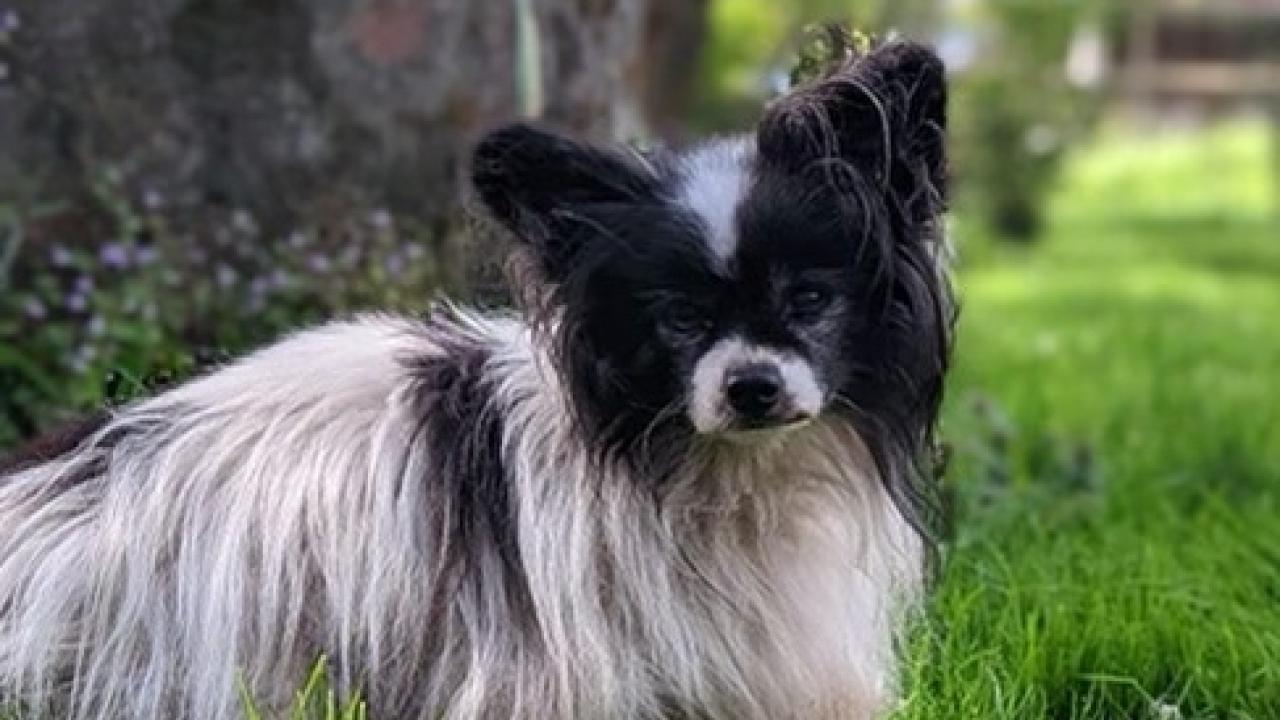
Celebrating A Decade Cancer Free
Research Makes a Difference
Tiddles was a 4-year-old Papillon when he was diagnosed in 2011 with a brain tumor. His referring veterinarian gave him approximately 2 months to live. Other documented cases showed that, even with innovative treatments, he would probably not survive more than a year or two. But thanks to research, equipment, and treatments made possible by the donors to the Center for Companion Animal Health, Tiddles beat the odds. He recently turned 15 and is celebrating a decade of being cancer free.
“I had no idea that he would live such a good long life,” said owner Jennifer Denning. “I was devastated when I heard the diagnosis. I don’t know what it is about having an animal attached to you so deeply – Tiddles never left my side. I was absolutely traumatized that he was going to die at the young age of four, so I was thrilled about the possibility that he could have a longer life (with this treatment). I was willing to do anything and clinging to any hope I could find at that point.”
Tiddles underwent a relatively new treatment back then – stereotactic radiosurgery to treat the mass growing in his brain. The non-invasive procedure delivers a single high dose of precisely targeted radiation on the specific area of the brain where a tumor resides, minimizing the amount of radiation to healthy surrounding tissue. In many tumor types, this is done in 3-5 treatments. UC Davis started offering this treatment option shortly before Tiddles was diagnosed and is now advancing the therapy to new heights because of continued support from CCAH donors.
“I want to let the donors know that what you do makes a difference,” said Denning. “Without that help, and the research and intervention, Tiddles would have died. But he’s lived a full life.”
Denning went on to reflect on how much Tiddles means to her and how he holds a special place in her heart because of another major event that coincided with his arrival in her life.
“I think animals mark points in your life,” said Denning. “We tell time by those events. Tiddles’ arrival and the adoption of my son from China happened within a month of each other, so that marking of time holds significant value to me.”
